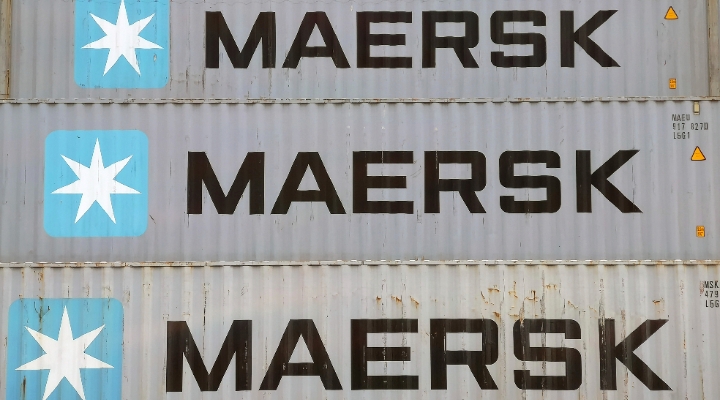
Maersk (MAERSK B) has started to turn the tanker around.
After a disappointing 2023, in which the shipping giant underperformed the Morningstar Europe All Cap index, the first week of the new year has been a different story.
The Danish company has already set sail for a top share price ranking for 2024, advancing 15% to just over 13,000 kroner amid the re-routing of vessels following attacks in the Red Sea. Freight rates are rocketing.
Recent events are, however, relatively immaterial for Morningstar's outlook on the stock. European market strategist Michael Field highlights a fair value of 17,600 Danish kroner on the stock with a High Uncertainty Rating, indicating it is undervalued by around 20%. He does not award the stock a Moat Rating mostly due to its core businesses, ocean and APM Terminals, being subject to significant competitive pressures.
Why is Maersk Grabbing The Headlines?
The ongoing attacks on commercial ships in the Red Sea by Iran-backed Houthi rebels has resulted in chaos for the world's supply chains. That prompted many ships to reroute from the Red Sea, which is a critical gateway to the Suez Canal, itself a vital trade link connecting Asia and Europe.
The new route, past the Cape of Good Hope in South Africa, makes journeys longer and more expensive. Around 15% of the world's seafaring trade passes through the Red Sea on its way to the Suez Canal and into the Mediterranean.
MSC, the largest container shipping company, said in mid-December it was avoiding the Red Sea. Maersk, the second-biggest, controlling about one-sixth of global container trade, temporarily halted transits of the Red Sea before returning to the area in late December. In the last week it has once more pulled back after one of its vessels – the Maersk Hangzhou – was attacked.
The detour around Africa increases the journey by at least 10 days. As a result, shipping prices have soared: Asia to Europe prices have nearly doubled since mid-December to more than €4,000 (£3,146) per 40-foot equivalent unit (FEU), Freightos data showed as of January 3, according to Reuters.
Are There Any Positives About Shipping Disruption?
Soaring shipping prices have almost inevitably got investors to push the stock price of shipping companies higher, something that we probably wouldn't have seen in a normal year. Morningstar's Field explains that over-capacity is now so bad that anything giving investors hope of better margins can spur interest.
"As firms got greedy and started putting in orders to take advantage of the rising demand during the pandemic, we then ended up in the same cycle where there is too much capacity," he says.
"That is where we have been in the last year, up until the attacks in the Red Sea".
The shipping industry had "a terrible decade" prior to the pandemic, only to then see capacity suddenly squeezed and prices exploding. As a result, Maersk made more in 2021 than it did in the entire decade prior. It then made even more in 2022. But in November 2023 the story changed. In its earnings report for the third quarter Maersk said it was cutting 10,000 jobs following a steep drop in third-quarter profit in the face of overcapacity.
For Field's part, he thinks that, for all its industrialised effort, shipping is a fragile business.
"The margins between profit and loss are extremely fine in this industry," he says.
"If there’s just a few too many vessels, it throws it all out of balance and the price of freight falls. Similarly, if there is a squeeze, like the one we are seeing now, and a tight overdemand, the price goes through the roof."
How Long Could Maersk Benefit?
In the last year investors have shown little interest in Maersk and many other shipping companies. The consensus has been it will take around two to three years for the sector to recover.
"Only a few months ago freight rates were at a level where some firms were actually making a loss on freight. Any boost from that level makes a huge difference, since it literally means the difference between profit and loss," Field explains.
As long as the disruption and accompanying higher freight prices remain, the less time until supply and demand are rebalanced again.
"If, for example, it went on for six months, that would mean six months less of negative pricing, and instead six months of them actually making money," he says.
Although there is no evidence the disruptions in the Suez Canal will last for six months, Field argues it is more likely to take around three or four months for the situation to settle. That means three or four months with higher freight rates to compensate for less capacity on the market.
Morningstar Key Metrics For Maersk
• Fair Value Estimate: 17,600 Danish Kroner;
• Morningstar Rating: 4 Stars;
• Morningstar Economic Moat Rating: None;
• Morningstar Uncertainty Rating: High.






























